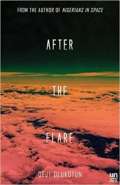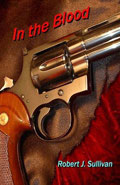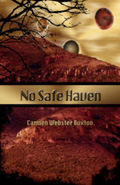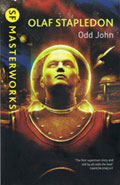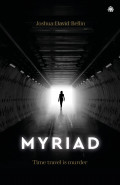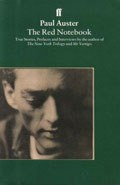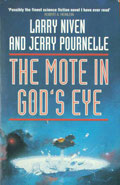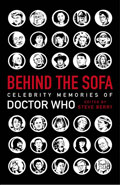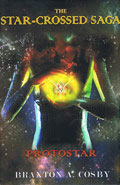The 1973 annual world's best SF
By Donald A Wollheim
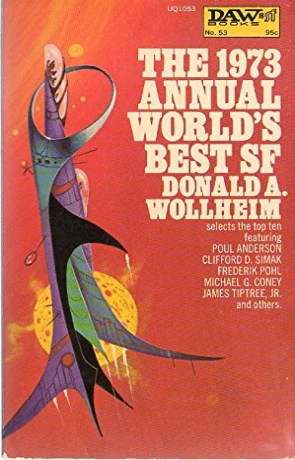
- The 1973 annual world's best SF
-
Author: Donald A Wollheim
-
Publisher: Gollancz
- ISBN: 978-0575017375
- Published: October 1973
- Pages: 255
- Format reviewed: Hardback
- Review date: 28/12/2021
- Language: English
- Age Range: N/A
The year 1973, UK, Ireland and Denmark join the European Union, CBS sell the New York Yankees for $10 million and Skylab, the United States first ever space station, is launched. It's not a year that's often recalled in history, but quite a bit did happen.
Inflation caused issues around the world, which led to recession in a number of countries - partly as a result of Arab members of OPEC (Organization of Petroleum Exporting Countries) restricting crude oil supply to countries supporting Israel. It was a busy year for NASA, not only with the launch of Skylab, but also Mariner 10 which became the first spacecraft to reach Mercury. It also became the first spacecraft to visit two planets in one mission as it flew past Venus on the way. The USSR launched Luna 21, deploying the second soviet Lunar rover Lunokhod 2. The World Trade Center opened, becoming the tallest building in the world, at least until the Seers Tower was completed a few months later. The Sydney Opera House also opened, regarded as a masterpiece of 20th century architecture.
Following the signing of the Paris Peace Accords, a ceasefire came into effect in war-torn Vietnam, leading to the withdrawal of US troops, although fierce fighting still carried on within the country for another two years. US President Richard Nixon told the country "I am not a crook", while the watergate scandal erupted around him. Closer to home, the IRA bombed King's Cross and Euston station, the Whitehall, the Old Bailey and Manchester city centre. Growing up within the vaporisation zone of two nuclear power stations, the legacy of these bombings and others overshadowed my childhood. The occupation of wounded knee occurred, with 200 native Americans and members of AIM (American Indian Movement) occupying the land and taking 17 people hostage. It was a protest against the governments policies related to native Americans and took 71 days to reach an agreement, ending the occupation.
So why are we talking about 1973 and stuff that happened 48 years ago? Just as the year was drawing to a close, with snow on the ground (in some places) and Christmas still in the air, I was born. While this event isn't even a minor footnote in the annals of history, it was important to me (and perhaps a few others) and I decided it would be a good idea to see what science fiction was like in the year of my birth. What better way to feel the pulse of the genre at the time than to read short stories?
Science fiction during the 1970's saw the rise of the "new wave" era that had begun in the 1960's, as authors began to experiment with the genre, writing about entropy, postmodernism, surrealism, utopia and other topics considered to be part of mainstream fiction. They were less afraid to write about controversial subjects such as sexuality and politics, putting a greater emphasis on style, while wanting science fiction to be seen in a more serious light. An image hindered by previous "pulp" stories along with the perceived high cost of entry of reading "hard" science fiction stories. Writers including Ursula K Le Guin, Joanne Russ, Michael Moorcock, Harlan Ellison, Samuel R Delany, John Brunner, J.G. Ballard, Alice Bradley Sheldon (writing as James Tiptree Jr) and Phillip K Dick (amongst others) began to break the boundaries of the genre. Even many older and more established authors began to follow this "new wave", perhaps none more so than Heinlein who explored open sexuality in his novels Stranger in a strange land and the moon is a harsh mistress. There was even a very slight improvement in diversity, although it was still a massively male dominated industry. The influence that the new wave era of science fiction has had cannot be understated, it has coloured western society in many ways, and helped shape the genre into how it is today. Without this new wave, science fiction would not be as big, as influential or as diverse.
There were a few books of note published that year, Arthur C Clarke wrote about a Rendezvous with Rama while Kurt Vonnegut had a Breakfast of Champions. Boris and Arkady Strugatsky decided it was Hard to Be a God while J. G. Ballard was involved in a Crash.
The 1973 annual world's best SF, edited by Donald A. Wollheim, is the anthology (second of a nineteen volume series) I found a few years ago, when looking for short stories published in 1973 that I didn't have to trawl through many hard to find magazines to read. It's been mocking me on a shelf ever since, as unread books are prone to do. In hindsight I might have been better going for Nebula Award Stories Eight, perhaps next year.
The anthology begins with an introduction by the editor, who spends a lot of the time ranting about this "new wavism" sweeping the genre and how it's trash popularist fiction pandering to "people who hate science fiction".
Not a promising start.
It also highlights the biggest issue that did, and still does, effect science fiction. Despite the fact that the genre is all about examining the future, exploring that magnificent, wondrous, vast question of "what if", many involved in (or following) the genre seem absolutely terrified of change. It's still a problem almost 50 years later with diversity and a lack of representation for women and minority groups. You only have to look at the last few years of the Hugo awards to see how deeply this issue is still effecting the genre and how even now a small, vocal group are decrying changes that have long been past due.
To put the issue in some context, The Encyclopedia of Science Fiction called Wollheim:
One of the first and most vociferous SF fans
While Robert Silverberg remarked that Wollheim was:
One of the most significant figures in 20th century American science fiction publishing
There is no doubt that he was a major figure in the genre, and was so for a considerable amount of time. So if someone who was so fundamental, one of the "most vociferous", behaved like this about change, what does this say? Science fiction has, as a result, clawed with tooth and nail to get where it is, and will have to continue to get where it should be.
Anyway, the actual choices of short story (let's not get started on "World Best" when the authors are almost exclusively American) are not as bad as they could be (introduction aside). Interestingly it's a mix of traditional and new wave, despite the editors distaste for the later.
Goat Song by Poul Anderson
Originally appearing in the Magazine of Fantasy & Science Fiction, this little gem won the 1973 Hugo award and the 1972 Nebula award for best novelette while coming third for the Locus Poll Award, Best Short Story. Far in the future, man is governed by an advanced AI known as SUM. SUM is a bit of a smart-arse and claims to record and store a persons soul, allowing a form of reincarnation at a future date. So far though SUM has only used such technology to keep the eternal ruler, The Dark Queen, young. Meanwhile a Harper, who seems to be the only person left who remembers the old songs mourns for the loss of his beloved, wishing for her to be resurrected.
It's a retelling of the Orpheus myth, but jam-packed with the usual clever ideas of Anderson's. A good story, and worth a read, but not the best in the collection.
The Man Who Walked Home by James Tiptree, Jr.
James Tiptree Jr was a pseudonym of Dr Alice Bradley Sheldon, kept a secret until the late 1970's and used as a pen-name throughout her career. The Man Who Walked Home, first appearing in Amazing Science Fiction Stories, is about a time travel experiment that goes disastrously wrong with far reaching implications for humanity. The story spans hundreds of years, with war and devastation causing humanity to revert to the technological equivalent of the bronze age. Once each year, on the spot of the experiment in Idaho a shape appears just for a second and slightly different each time. You don't fully realise the extent of the plot till the very end, but when you it makes so much sense. It's a clever short story that carries a great idea, with some really good writing. To be honest it's much stronger than the Goat Song that won the Hugo and Nebula. One of my favourite of the collection.
Oh, Valinda! by Michael G. Coney
An author I've never heard of, but with the amazing middle name of Greatrex. He's also British (truly this is a "world" collection). Originally published in New Writings in SF 20, Oh Valinda! is about humanities greed and predilection to destructively harvest at the cost of habitat as giant animals and vast icebergs are collected for profit on the alien world of Cantek, while aliens look on with more emotion that the humans who carry out the destruction. Bit like avatar but without the elongated smurfs and strange plants. Not a bad story, if a little predictable.
The Gold at the Starbow's End by Frederik Pohl
Frederik Pohl was such a great writer and arguably at his best with novella length stories. The Gold at the Starbow's End, originally appearing in Analog Science Fiction/Science Fact, won the Locus award for best novella and was nominated for the Hugo and Nebula. It was eventually expanded into a full length novel under the name Starburst. An article in The Encyclopedia of Science Fiction, written by John Clute and Brian Stableford, suggests that this story is an important transitional piece for Pohl, leading to his more popular work of the 1970's and 1980's.
So ten people are travelling on the starship Constitution on a multi-year voyage to our close neighbour Alpha Centauri, the end result of which is to colonise the orbiting planet Alpha-Aleph. On the way, to prevent boredom and expand their minds, they begin to examine more complex mathematical problems. Meanwhile back on Earth, things are not going quite so well, society has become dystopian in nature and the future looks a little pear-shaped. And then the real purpose of the mission is revealed.
I loved this dark little gem. It's a great story, told well and one of the standouts of the collection. I may have to track down Starburst and see what differences Pohl makes.
To Walk a City's Street by Clifford D. Simak
Quite different to Simak's usual style, more an interesting idea-piece, but not bad all the same. First published in Infinity Three, protagonist Ernie has a job that consists of walking down streets he's told to walk down. That's it. He's told that this walking down specific streets helps people because Ernie has a special ability to heal. All Ernie knows is that it's a boring job, even if he has never eaten as well before, and he was happier when he was poorer amongst friends.
It's only a few pages long, but what's there is an interesting diversion.
Rorqual Maru by T. J. Bass
T J Bass isn't an author I'm familiar with, but it appears he was also a physician that had a few outlandish ideas about health. It also appears he only ever wrote two novels. Rorqual Maru (meaning Whale Ship in Japanese) is part of the Godwhale series and was later expanded into his second novel, The Godwhale. It imagines a future where the problem of overpopulation has been overcome by an evolved, four-toed human species (known as Nebishes) being part of vast hive complexes, under the control of an advanced AI. Those five-toed, un-evolved humans eke out a harsh existence outside these hives. The Rorqual Maru is a cyborg whale, part mechanical ship and part organic whale. You can tell the author has a medical background by the way he writes, it's full of medical terminology but also stacked full of absurdist humour too. It's such a weird combination, especially when combined with cyborg whale-ships, simple Nebishes, strange characters and an odd narrative structure. I feel drawn to finding a copy of the Godwhale (and maybe the authors first novel Half Past Human) to see the full picture.
Changing Woman by W. Macfarlane
Another author I'm not familiar with, and my least favourite of the collection. Originally published in Galaxy, Changing Woman is a tale of a native American geologist who is hired to work on a special project to map the Earth in close detail. It's a bit dull and not at all memorable.
Willie's Blues by Robert J. Tilley
First published in Fantasy & Science Fiction, this is another time travel story. This time though it's a jazz musician / musical historian who travels back in time to the 1930's to see his favourite musician, the tenor sax virtuoso Willie Turnhill. As with most time-travel related shenanigans, things do not go as planned. As someone who continues to fail to learn the saxophone, I just loved this story - it just oozes the style, power and poignancy of jazz music.
Long Shot by Vernor Vinge
One of the more "traditional" stories - although a good example of the style. Vernor Vinge is great at writing hard science fiction and Long Shot is no exception. Originally published in Analog, humanities hopes for survival rest on the long shot of a spacecraft manned by an artificial life form called Ilse managing to find a replacement habitable planet that can support human life. before everyone dies. Even under optimal circumstances, it's a voyage expected to last centuries. Of course as you might expect, things do not go exactly to plan. Really enjoyed this, the author at his best.
Thus Love Betrays Us by Phyllis MacLennon
Phyllis MacLennon was an American author, translator and linguist who only published one novel and seven short stories, including this one - which is generally regarded as her best known work. It was first published in The Magazine of Fantasy and Science Fiction. Thus love betrays us follows Alex Barthold who is dropped of by the starship Magus onto the planet Deirdre to catalogue it's flora and fauna. It's a depressing planet with a permanent day time, shrouded in mist and covered in moss. It's boring work but Alex is glad of the peace and quiet. Then the Magus explodes an Alex is really alone, and the nightmare begins. One of the better stories of the collection (two of the best stories written by the only two female authors in the collection).
Written on 28th December 2021 by Ant .
